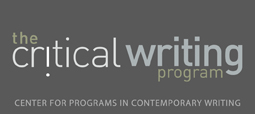Ancient History
An Overview of the Discipline
Ancient history began as a discipline in the early 20th century as strictly a study of the classical Greco-Roman civilizations. Currently, it has grown to encompass the study of all written past from the beginning of recorded history to the Early Middle Ages, and areas ranging from the Indo-Chinese civilizations to the Near East. A key subdiscipline within ancient history is that of philology, a combination of literary studies, linguistics, and history that focuses mainly on the language used in historical sources.
Writing in the Discipline
Goal
Scholars in ancient history synthesize evidence in new ways so as to shed light on the nature of ancient civilizations. This can be done by contesting an interpretation of a particular event, such as how the Greek City-State was born, or by working on new and unstudied fields, such as translating an overlooked text. The ultimate aim is to acquire a more complete picture of how societies operated.
Whether ancient historians aim to explain or argue depends almost entirely on the scholarly personality of the writer in question. Some set out to contest a certain position while others seek to offer more information on a specific historical topic. However, given the tone of papers in ancient history, very little writing is purely explanatory.
Evidence
Ancient history is a very text-oriented field, and, as such, the most legitimate evidence comes from ancient texts. For example, an ancient historian studying Greece may look at Herodotus's Histories, texts from Greek tragedians, and ancient poetry. Secondary scholarly interpretations of ancient texts are also widely accepted. Beyond direct text, a majority of ancient historians regard site reports from excavations of ancient civilizations as legitimate evidence. In fact, the study of hieroglyphic inscriptions, coins, and papyrus each comprise their own sub-disciplines.

Authorship
While academics in the discipline read one another's work, most research and writing occurs individually. A more collaborative spirit can be found in the revision process or at conferences among ancient historians used to present ideas and receive feedback. Outside of revision, however, ancient historians typically work independently.
The Writing Process
Publishing in the field takes a long time. Ancient historians typically begin by letting an idea gestate for a couple months or years, amassing information and threads of ideas that even tangentially relate to the topic. When focusing on a specific work, this early process also includes a thorough read of that particular text. Next, scholars consider secondary material: modern scholarship (from the broad to the specific) or scholarly interpretations. Finally, they start to write drafts their pieces. Revision, directly following the completion of drafting, is almost as extensive as pre-writing. Ancient historians tend to send their pieces to multiple peers for review. They may also use journals and peer conferences for further revision.
Student Writing Tips
Important Criteria for Student Writing
Professors in the field look first for solid reasoning and evidence: the piece should effectively argue or explain a point with ample evidence. In the same vein, effective organization and clear regard for instructions are important. And, as a final point, professors of ancient history value original ideas. Key ideas in an essay should not be rehashed and plagairized, but instead contribute in some new way to current scholarship.
Common Errors
When asked about common student writing errors, professors specifically highlight two: failure to produce an argument and failure to closely read the text being examined. Other commonly cited errors include inability to follow instructions precisely, making meaningless generalizations, and being verbose.
Genre
Student Assignments
The most common assignments professors in the field ask of their students are quick responses to texts they read that can be anywhere from one page to ten. Other assignments include more factual, explanatory pieces. For example, students may be asked to identify where animals appear in the Qu'ran. For higher-level classes, students may be assigned larger research papers in which students are expected to decide on a topic or text to explore, conduct research, and take a position relating to it.
Professional Genres
Professional writing typically involves scholarly interpretations of ancient literary texts. This often includes translation projects. For example, a professor may translate an ancient work and then analyze the style and grammar of said piece to determine what it reveals about the culture.
Additional Resources
Looking for Help
A writer seeking to improve their writing in the field is advised, first, to read out aloud their own pieces and ensure everything from reasoning to grammar makes sense on a basic level. Professors emphasize that the majority of flaws in writing can be ironed out by more attentive revision or close-reading. And, if deeper problems persist, they are either referred to a teaching assistant or the writing center.
Helpful Books and Articles
Thinking Like a HistorianWriting in the Historical Disciplines
© 2013-2014 The University of Pennsylvania
Meet the Professors

Jeremy McInerney
Professor Jeremy McInerney looks to write about whatever he finds "interesting or odd, topics that haven't already been endlessly discussed or debated." More...

Joseph Lowry
Professor Joseph Lowry's personal academic interests range from Islamic Law and Arabic Literature to the Qu'ran and the Persian Language. More...
